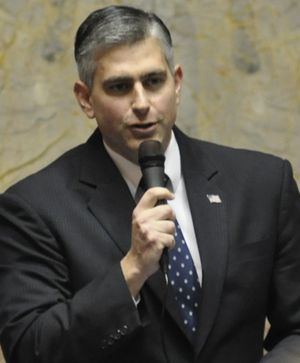WALeg Day 1: Senate adopts “super-majority for new tax” rule
OLYMPIA -- Senate Republicans pushed through a new procedural rule that will require any new tax proposal to receive a two-thirds majority to move to the floor for its final vote.
After losing a vote on the position of Senate president pro tem because two members defected to Democrats, Republicans held together and passed the rule change with 26 votes.
Previously, a simple majority was all that was needed to move a bill to the floor for its final vote. Under the new rule, it will take a super-majority of at least 32 votes if the bill includes a new tax. Raising an existing tax or changing a tax loophole won't require that super-majority.
Sen. Mike Baumgartner, R-Spokane, one of the sponsors of the change, said voters have approved similar restrictions by initiative five times. But last year the state Supreme Court ruled such a change must be made by a constitutional amendment.
"The Supreme Court can make their rules in their chamber. We make our rules here," Baumgartner said.
Sen. Andy Billig, D-Spokane, argued Republicans didn't need such a rule because they had a majority, which could keep any bill from coming up at any time. "This set of rules is a recipe for gridlock,"he said
Democrats argued it violated the constitution, which calls for bills to be approved by a simple majority. They tried but failed to amend the new rules to require any such change for a super-majority must be approved by the same super-majority Republicans were seeking for taxes. It failed on a voice vote.
Despite the rule change, Baumgartner predicted the state' final budget will be "a bipartisan, compromise budget." Last year, 48 of the 49 senators voted for the final budget, he said. But that budget didn't have the stresses of additional funding for the Supreme Court's orders to improve public schools, or the initiative voters passed in November to reduce the number of students in classes, Sen. Jim Hargrove, D-Hoquiam, said.

